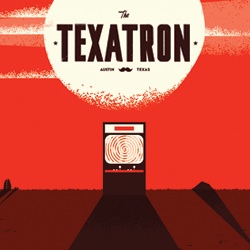RAGDOLL METAPHYSICS: SOAP OPERA & THE SIMS
Next month sees the release of The Sims 3, the second sequel to one of the most popular videogames of all time. What’s interesting about the series is not simply its success, but the fact that it has essentially created a genre of its own. There are very few social people-sim games, and none that can even pretend to rival The Sims. I think Sims 3 will be the last Sims title that will launch with that kind of comfort zone. Its time as a one-game genre will soon be up.
The Sims is a game that has, quite deliberately, tapped into the mainstream of modern life, not just mechanistically (in a game about everyday lives), but aesthetically and fictively (with stories about, er, everyday lives). All of which led me to think about where it is that The Sims connects to culture generally. Where outside games do we see similar methods? Where are the resemblances and likenesses across media? Where else does this kind of appeal-to-everyday stuff really connect with our culture? I’d say it was in soap opera.
Nothing new there, of course: “The Sims is the gaming equivalent of the TV soap opera” was probably typed up in the first preview of the game. Playing The Sims and watching a soap are nothing alike as activities, but they nevertheless share an important theme: they’re both purely about our reaction to the behaviour of other people, and the pleasure we get from them is the vicarious pleasure of watching something relatively abnormal happening in a very mundane and familiar situation. While games are usually a series of interesting decisions, The Sims hits the same notes as soap, offering a series of interesting situations too.
I’d like to think that a good part the art of worthwhile commentary is in seeing the kinds of connections between this and that piece of culture, and then figuring out why they might matter. The idea that The Sims and soap opera are fundamentally linked seems to me like an important connection, and one that will only grow in importance in the coming decade.
This small observation about the game is tied up both with The Sims‘ obvious appeal to a certain demographic, and also its lack of appeal for the traditional hardcore gamer. In fact, the idea of The Sims – and probably the idea of soap operas – is a subject of ambivalence for most self-identifying gamers. Rather than use our gaming technologies to conjure up gruesome or spectacular flights of imagination, it’s really rather down to Earth. It’s just people, babbling inanely and trying to live their life: nothing like the bold heights of imagination, strategy, or puzzle-solving that our computerised entertainments are capable of. It almost seems like a waste.
And yet it is a startling success. So perhaps the connection between The Sims, soap operas, and commercial success isn’t at all trivial. What if the idea “why aren’t there more games that are like soap operas” is actually what will lead the gaming industry to its holy grail: the game that appeals to the masses? If that is, in fact, the thinking that made The Sims so successful in the first place, couldn’t it also be the design philosophy that changes the nature of games in the future? And why aren’t game designers following it?
I think it might be time for a thought experiment, a gentle “what if” through the lens of game culture. What if the starting position for videogames was not, say, Dungeons & Dragons, but daytime soap opera?
Imagine it: instead of text adventures and MUDs being designed to entertain MIT students and 23-year old computer engineers, they fall into the hands of bored housewives and teenage girls. A couple of large technology companies in the 1980s realise that there’s a huge market for entertainments for these bored folks, and the videogames industry kicks off.
Only it’s not how we remember it. This time there are romantic text adventures, digital dollhouses, dating games. Card deck games where you collect friends, or Versace. The trend continues and the licenses that get picked up are not action movies, but those of popular soap operas: Not just hot teenage stuff like 90210, but Guiding Light, Days Of Our Lives, and One Life To Live. This is a games industry completely different to our own, and yet somehow… plausible.
The games that – mostly women, but quite a few men – are playing in this world are mostly a reduced kind of RPG, or a point and click adventure. They’re mostly rubbish too, but they sell enough to cause the industry to expand enormously. We can imagine, perhaps, games like Deus Ex or Vampire The Masquerade Bloodlines still being made in this environment: games about social situations and interactions with interesting people (particularly those sexy vampires). Although it might have started in quite a different place, the soap opera world could evolve to create quite a similar games line up to the one we have today.
In January 2000, when Willima Wright, lauded female game designer, invents The Sims, no one is surprised, and the game quietly becomes one of the most successful games ever made.
Actually, this soap opera-dominated parallel world of gaming isn’t so far from the truth of the world we face right now, it would simply have got there via another route. If we look at sales figures alone then The Sims as we know it looks a whole lot like that para-world: the series has, in our real world, sold 100 million copies, and generally not to “hardcore” gamers.
Compare that figure to the classic hardcore success of just 65 million for the Grand Theft Auto series, and you begin to see that my nonsense world of sop opera games isn’t really all that alien. Could it be time to turn that around? Perhaps, in that other world, GTA is replaced by some kind of sandbox shopping and dating game. Hell, perhaps in our imaginary world Sex And The City starts out as a sandbox game, only later turning into a hit TV show.
The more I think about that made up game history, the more I feel as if that parallel world is actually just the turn of a page away. That our games industry appears to be dominated by young male power fantasies is, well, largely an appearance. The bluster of Gears of War marketing gets a lot of profile, but it’s still Sims expansion packs that are sitting unmolested at the top of the charts. That can’t be inconsequential to the overall future of the medium.
Of course I can’t deny the reality of the young-male gamer: the history of games has been one that has been dictated largely by games being made by the kind of people who wanted to play them. But I’d wager that the generation we have right now, the generation that the next wave of developers will come from, is going to look a lot more like the game studios in that parallel world. They’re going to be the people who have grown up with soap-opera-as-gaming in sharp focus. And they’re going ask: why is there only The Sims (and maybe Animal Crossing)? And why don’t we see soap opera games, social people sims, hitting our game stores like a tsunami in every holiday season?
Before the decade is out, I’d wager, that is going to change.
[Jim Rossignol is an editor at RockPaperShotgun.com and the author of This Gaming Life, an account of the life of modern videogames and some of the people who play them. Ragdoll Metaphysics is his Offworld column exploring and analyzing gaming’s vast world of esoterica.]
Previously:
Ragdoll Metaphysics: 2008 And The Indie Renaissance – Offworld
Ragdoll Metaphysics: Ten Things That Made Me Glad To Be A Gamer In 2008 – Offworld
Ragdoll Metaphysics: Left 4 Dead, The Thinking Man’s Braindead Shooter – Offworld
See more posts about: Offworld Originals, Ragdoll Metaphysics






